- Home
- Jason Pinter
The Guilty Page 8
The Guilty Read online
Page 8
“Betty Grable,” she said. “I’m—was—oh God—I’m Mr. Lourdes’s assistant.”
My jaw dropped.
“That,” I spat out. “That’s Jeffrey Lourdes?”
She nodded again, then burst into tears.
Jeffrey Lourdes was the publisher of Moss magazine, and one of the most influential figures in popular culture for nearly thirty years. He’d been credited for discovering dozens of headlining acts, some of the greatest reporting the country had ever seen, and now he was a mass of flesh torn apart by a piece of lead.
“I didn’t know what was happening,” Betty said. “I swear.” Her hands were a trembling mess, tears cascading down her cheeks. “I was just telling him he had to be in early tomorrow for a photo shoot, then out of nowhere—”
She covered her mouth with her hand, choked sobs into it. I stayed silent. Had to let it come to her.
“Then he shot him!” she cried. “He shot him!”
“Who?” I asked.
“The young man,” she said, her lip quivering. “He did it.”
“Who was he? Young man? How old was he? What did he look like?”
“I don’t know,” Betty said. She looked at me as if having a revelation. “He looked about your age.”
I stopped writing, looked at her.
“What happened?”
“We were standing there, Jeffrey was about to hail a taxi, and all of a sudden this man came out of nowhere. He was holding this giant—gun isn’t even the right word—this giant thing. This fucking cannon. He just walked right up to Jeffrey and pulled the trigger, and then he ran. Oh God, Jeffrey!” She was staring at the body. One foot was visible through the sea of blue and white. I saw a police car pull up in front. An ambulance behind it. Two EMS workers popped out, ran to the body. I could tell from their body language they weren’t going to work too hard on this one.
“What did he look like?” I said.
Betty shook her head. Not because she didn’t know, but because she didn’t want to.
“He was tall,” she said. “Maybe an inch taller than you. Jeans. A jacket.” She trailed off.
“What else?”
“I don’t know!” she cried.
“Trust me, I know this is hard,” I said. “But did he have any distinguishing features. Facial hair, tattoos, piercings…”
“The gun,” she said.
“The gun?”
“The way he held it after he killed Jeffrey. I’ll never forget that look in his eye. He stared at his gun for a second and then he ran. Looked at it the way somebody looks at a lover. This sick, sick boy. Oh my God…”
“The gun,” I said. “What did it look like?”
She looked at me as if in shock that I could be asking such a trivial question.
“Please. It’s important. Think.”
“It…it looked like something out of a movie. Not a recent movie, something old. And the way he held it, like it was fragile.”
“What about what the gun looked like?”
“The handle was brown…”
“Could it have been made from wood?” I asked. She nodded.
“There was this terrible explosion…” She stopped. “Please, I can’t do this right now.”
“Can you tell me anything else about it? Was it one barrel or two?”
“I don’t know! I’ve never seen a real gun before in my life, now please leave me alone.”
Just then a cop seemed to take notice and jogged over to us. He separated me, whispered, “Get the fuck out of here, scum.” Then he said, “Miss, did you see the shooter?”
As I walked away, I looked over my shoulder long enough to see her nod and then collapse in his arms.
* * *
Ten feet from the carnage, a man clicked open his cell phone. Sweat was streaming down his face. He’d thankfully skipped lunch. Breathing heavy, he pressed Redial and waited for an answer.
“Hello?”
“Miss Cole?” He mopped at his brow with a shirtsleeve. “It’s James Keach. You’ll never believe what just happened.”
CHAPTER 17
I arrived home tired to the bone. After spending hours writing my piece on the Jeffrey Lourdes murder, my fingers ached, and my head throbbed. I’d had enough death for a lifetime, and I was growing tired of seeing it up close. I tossed my wallet and keys on the table, fell into the couch next to Amanda. She put her hand on mine. I squeezed it with whatever energy I had left.
We sat there. Tried to talk. Conversation came in bits and pieces. Amanda had ordered dinner for both of us. I wasn’t hungry, just watched her poke at a salad. I stirred my pasta with a disinterested fork. All I could think about was Jeffrey Lourdes, and how ironic it was that the first time I ever saw him in person, his most recognizable feature had been reduced to blood and bone.
Betty Grable’s words still rang in my ears. Between what Curt Sheffield told me about the ammunition used to kill both Athena Paradis and Joe Mauser, and her description of the weapon used to kill Jeffrey Lourdes, there was no doubt in my mind that the killer was using a rifle that took magnum bullets, and he was using that weapon for a reason. And somehow I had to find that reason, and use that to find the killer.
“How’s work?” I asked Amanda. It was just a conversation starter, something to break the mood. Death was an inevitable part of reporting, but it had no place at the dinner table.
“The judge is still being a dick on the Mary Westin case,” she said. “Three abuse complaints from the neighbors, two cigarette burns and Judge Jellyfish still doesn’t realize it’s in Mary’s best interest to be taken the hell away from her sick-ass parents.”
I nodded, picked at a piece of penne. On many nights I’d told Amanda how proud I was of her—both her work ethic and choice of profession. After graduation, Amanda had passed her bar exam and achieved high enough marks to warrant a position in the Juvenile Rights Division of the New York Legal Aid Society. The caseload for lawyers working for the Legal Aid Society had increased nearly a hundred percent in the last few years, mainly due to some high-profile cases of child abuse and neglect that resulted in the horrific death of children who had slipped through the cracks. The Legal Aid Society had taken a beating in the press for their alleged inability to protect children whose parents were already the recipients of numerous abuse complaints. Because of this they were looking for fresh blood, cowboys and cowgirls who wouldn’t stand for red tape.
Amanda worked long hours, alongside several other lawyers who were appointed “law guardians” by the court. It was incredibly enriching work for her, I knew. But spending all day every day around troubled and abused children took its toll. Sometimes she would come home, crawl into bed and appear on the verge of tears. She was too strong for that, though. She knew her tears were trivial compared to the reality of the situation. And her energy was better focused outward than in.
“You know, I sit there sometimes,” she continued, “and I want to scream. Not that I really hate the guys I work for, but in these cases you need to throw the book against the wall and just holler. Right and wrong doesn’t stem from legal precedent.”
I felt her staring at me, waiting for a response. I didn’t want to talk about my day, but had to bite my tongue not to erupt. I hated making Amanda feel like my troubles were any more important than hers, but I couldn’t focus on anything but this story.
“I have a lot of work for tomorrow,” I said. “I’m pretty sure whoever’s responsible for these murders is using an antique rifle or a replica, something that hasn’t been used in a long time. There are thirty-two gun shops in the five boroughs alone, so I have my work cut out for me.”
“You should talk to Agnes Trimble,” Amanda said, sighing, wiping her mouth as a tomato spurted juice onto her plate. “She was my American History professor at NYU. Brilliant woman, but she scared the hell out of us during student conferences. She kept half a dozen model guns in her office, you know, like some people keep snow globes or toy fire trucks. She knows m
ore about guns than Al Gore knows about the environment. Belongs to the NRA, all that good stuff. I can call her if you’d like, she should be in the city for the next few weeks and I’m sure she’d be happy to talk to you. Who knows, maybe she can help.”
“Actually, yeah. That’d be a huge help,” I said. “Thanks.”
“No problem.”
We sat there in silence as I listened to Amanda chew.
“Did you see him die?” she asked me. There was a corner of lettuce sticking out of her mouth.
“No,” I said. “I just saw what happened afterward.”
Amanda chewed more.
“You don’t want to know,” I said.
“No,” she replied. “Guess I don’t.”
As I got up and tossed the rest of my dinner into the garbage, the buzzer rang.
“Are you expecting anyone?” she asked. For a moment, my heart hammered. I could picture Mya waiting downstairs.
“No,” I said. Amanda looked at me for a moment, surely knew what I was thinking. We walked to the window. Though we had no doorman to announce visitors, our apartment overlooked the building’s entrance vestibule. Handier than an eye slot.
I grunted and heaved the window open, reminding myself to wipe down the grease and grime later, and poked my head outside. Looking down, I saw a man wearing a gray trenchcoat and hat. He looked up.
“Let me the hell up, will you?”
“Who is it?” Amanda asked.
“It’s Jack,” I said with more than an ounce of relief. I closed the window and pressed the door release button.
“Doesn’t he have his own home? What’s he doing here at this hour?”
“I have no idea.” I’d worked with Jack for over a year, and never once had we seen each other’s apartments. I pictured his clean, full of polished wood and cracked books. Shelves lined with erudite literature and snifters of amber liquid, a fire roaring as he puffed a pipe and wrote great news of the day.
I looked around my apartment. Wondered if his vision of mine contained empty bottles of Pepsi and a subscription to Glamour.
“Quick,” I said. “Hide stuff.”
I picked up all the girly magazines, food wrappers and rubber bands I could find and threw them in the trash. Which was already overflowing with girly magazines, food wrappers and rubber bands.
“What are you doing?”
“Amanda, baby,” I said, taking her hands in mine. “I idolized this man growing up. He’s probably the only man I’ve ever dreamt about. And now he’s coming up to my apartment.” She eyed me like I’d just insulted her mother. “Okay, forget I said that. Just help.”
For the next minute, we scrambled around the room tidying up as best we could. In those sixty seconds, our one-bedroom apartment went from resembling a tsunami-affected college dorm room to resembling an apartment lived in by two people who cleaned dishes after using them.
I heard a knock at the door. I looked around, panicked, then threw myself onto the worn polyurethane sofa and crossed my legs. Amanda glared at me.
“You expect me to open the door?”
“Would you mind?” She gave an exasperated sigh.
“Just so you know, you’re sleeping on the couch tonight.” She went to the door. Peered through the eyehole for dramatic effect. “Who is it?”
“Now it’d be some coincidence if it was someone other than the guy who was just downstairs,” Jack said, his voice muffled by the door.
Amanda unlocked the door and opened it. Jack was breathing heavy, the trenchcoat seeming to weigh him down. He took off his hat, a few loose gray hairs sticking to it.
“You must be Miss Davies,” he said.
“That’s right.”
“Charmed.” He took her hand, kissed it as he looked into her eyes. She smiled demurely. “Henry here talks about you nonstop.”
“Is that so? Well, at least one man here can call himself a gentleman.” She led him into the apartment. “Can I get you a drink, Mr. O’Donnell?”
“Please call me Jack. And I’ll take a Jack as well, if you have one, on ice.” Amanda and I looked at each other. “It’s been a long day.”
Amanda disappeared into the kitchen. She came back with a glass full of brown liquid over ice. “Seagram’s Seven. All we had.”
“Do nicely,” Jack replied. He moved over to the couch, let out a groan as he sat down. “How you holding up?”
“Me?” I said incredulously.
“Heard you were at the Franklin-Rees building when…it happened.”
“Nearby,” I corrected. “I’m holding up fine. Jeffrey Lourdes is the one who was shot.”
“Murder has a ripple effect, gets a lot of people wet,” Jack said. “You better than anyone should know that.”
Jack took a sip of his Seagram’s. His cheeks were red, eyes tinged with veins. I wondered whether he was simply fatigued from taking the stairs, or if that Seagram’s wasn’t his first cocktail of the evening.
“I’m fine,” I said. “Really.”
“You know they haven’t found a quote at the scene of Lourdes’s murder,” Jack said. “The first two were left in such prominent locations, either he dropped the whole thing, or…”
“Or he just didn’t have time.”
“You have to wonder, really, what kind of person walks up to a man in broad daylight and shoots him in the head.”
“Same kind of person who shoots an unarmed woman and a cop from a distance,” I said. “They’re not dealing with your average run-of-the-mill lunatic. This guy has an agenda.”
“You think so?” Jack said.
“Well, look at his targets. Athena Paradis, Mayor Perez and Jeffrey Lourdes. Remember, Joe Mauser was a mistake. All three of those people are celebrities, in some form or another. He’s not killing random people, he’s killing people whose deaths would pretty much dominate news coverage. I mean, just look at the Metro papers the last few days. Athena, Mauser and tomorrow Jeffrey Lourdes will be everywhere.”
“What do you make of the gun?” Jack asked, another nip of brown disappearing down his throat.
“I really don’t know,” I said. “Seems like he’s using some sort of antique, something with a meaning. Don’t quite know what yet, but Amanda has a contact from school who might be able to shed some light. I spoke to Lourdes’s assistant at the scene. She got a quick glimpse of the killer and a partial of the murder weapon. Unfortunately she couldn’t ID the actual shooter, and her police sketch is more vague than a Rorschach. Because of the chaos at the Franklin-Rees building, the guy was able to escape in the stampede.”
“Mayor Perez, Athena Paradis and Jeffrey Lourdes,” Jack said. “Not exactly three people you could imagine having brunch together on a Sunday morning.”
“But someone sees them fitting in the same pattern.”
“In this city,” Jack said, “there’s no shortage of people like those three. People who hog the front page. And though our great police force is locked up tighter than my grandma’s cooter when it comes to terrorism, there’s no defense for a sick fuck who wants to kill one person at a time.”
“Lourdes,” I said, “was surrounded by a hundred people when he died. His shooting caused a stampede. It couldn’t have been any easier for the killer to disappear than if Scotty had beamed him aboard the Enterprise.”
“Nobody disappears,” Jack said, swallowing the last of the whiskey. “It’s our job to find out what rug they’re hiding under.”
“I’m on it,” I said. “You know the last quote he used. When he killed Joe Mauser.” I’d told Jack about my tip.
“I’ll let them know what bad means,” Jack said.
“I looked it up,” I said. “Guess quoting a junior reporter just wasn’t scary enough, he had to upgrade to sicker game.”
“Billy the Kid,” Jack said. “Carruthers scowled during his statement, like he couldn’t believe this thing could get any more macabre.”
“He’s moved on from quoting me to quoting mass murderers,” I
said. “Forgetting for a moment my disgust at being in that company, if the killer does see himself as some sort of avenger it probably means there’s a longer list of people this guy doesn’t like.”
“Billy the Kid,” Jack said. “You know the Kid, or whatever the hell his real name was, pretty much started the trend of yellow journalism. His estate should get royalties from the National Enquirer and Weekly World News. Reporters and hack novelists all over the country tripped over themselves to drool over this guy. Made him out to be some kind of hero. Some kind of Robin Hood. Idolizing celebrities practically began with the Kid.”
“You think that’s how this killer sees himself? Offing the rich and famous to help the poor?”
“Remember he also quoted your ass,” Jack said. “Let’s just hope all he’s got is an affinity for scary words. In the meantime, we need to stay ahead on this story.”
“Stay ahead? What do you mean?”
He took another sip and looked at me. And for the first time since I’d known him, Jack O’Donnell looked worried.
“Paulina,” he said.
“What about her?”
“She’s selling newspapers.”
“Well, that’s her job,” I said. “From what I hear she just didn’t fit at the Gazette.”
“Maybe not,” Jack continued, “but if the Dispatch beats us to this story, they could see a double digit circulation growth by the end of the year.” I stayed silent. “What that means, in lay terms, is we’d be fucked.”
I considered this. “I know the Dispatch’s circulation is up since she joined the paper, but I mean…”
“There’s been a three percent swing this week alone, Henry. Whether it’s our reporters getting beat to the punch or her articles attracting our readers, it’s happening. These three murders are the biggest story of the year, everyone with a pen and a brain trying to get a piece. There’s going to be a clear winner and loser here. We need to make sure we’re not the ones holding the silver.”
“They weren’t beating us to the punch when I reported Athena’s murder the morning she died,” I said, my voice coming out angrier than I’d hoped.

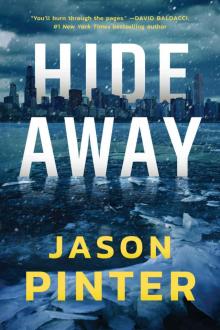 Hide Away (A Rachel Marin Thriller)
Hide Away (A Rachel Marin Thriller)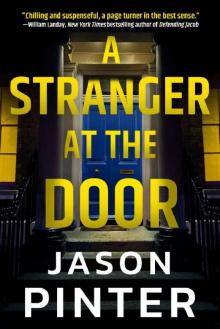 A Stranger at the Door (A Rachel Marin Thriller)
A Stranger at the Door (A Rachel Marin Thriller)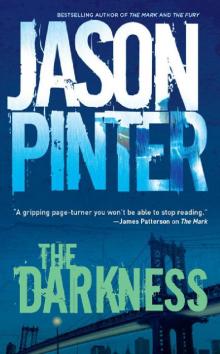 The Darkness hp-5
The Darkness hp-5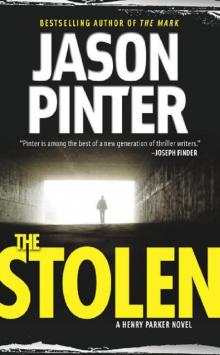 The Stolen hp-3
The Stolen hp-3 The Guilty hp-2
The Guilty hp-2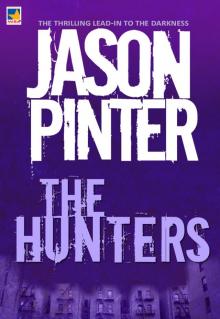 The Hunters
The Hunters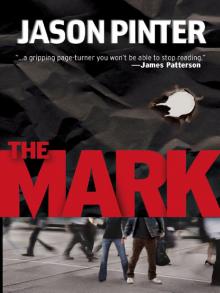 The Mark hp-1
The Mark hp-1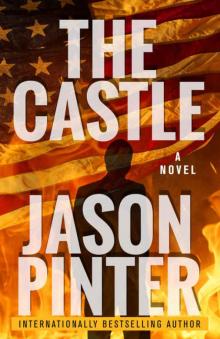 The Castle: A Ripped-From-The-Headlines Thriller
The Castle: A Ripped-From-The-Headlines Thriller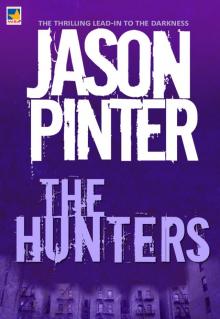 The Hunters (henry parker)
The Hunters (henry parker)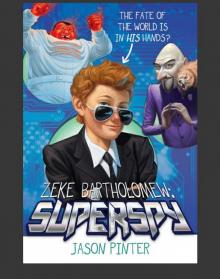 Zeke Bartholomew
Zeke Bartholomew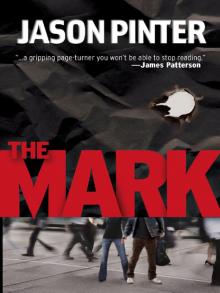 The Mark
The Mark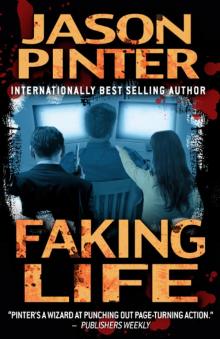 Faking Life
Faking Life![[Henry Parker 01.0] The Mark Read online](http://i1.bookreadfree.com/i2/04/08/henry_parker_01_0_the_mark_preview.jpg) [Henry Parker 01.0] The Mark
[Henry Parker 01.0] The Mark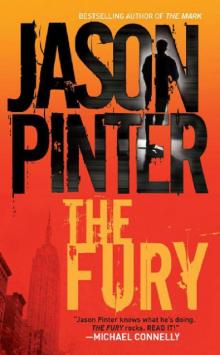 The Fury hp-4
The Fury hp-4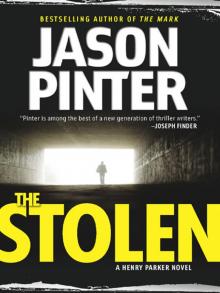 The Stolen
The Stolen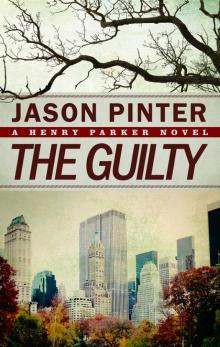 The Guilty
The Guilty